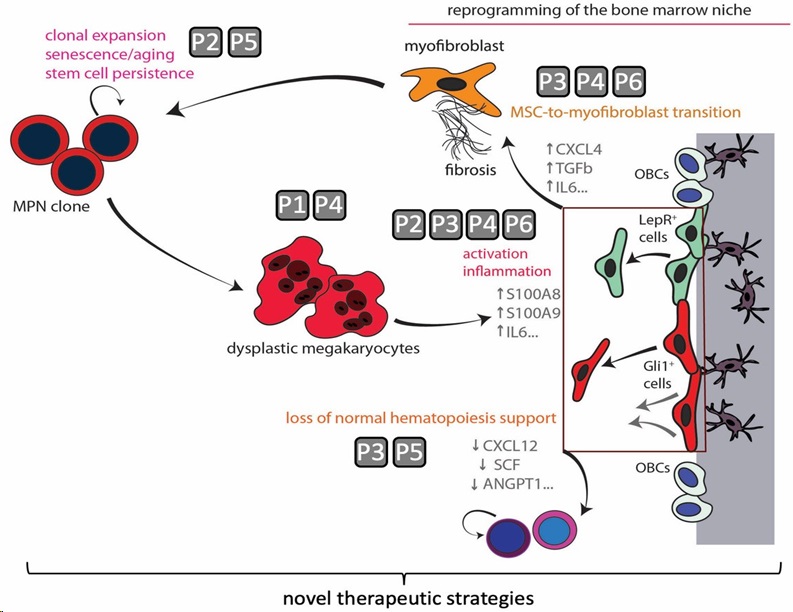Klinische Forschungsgruppe KFO 344 / Clinical Research Unit CRU 344
Mechanisms of Myelofibrosis in Myeloproliferative Neoplasms (MPN)
Myeloproliferative neoplasms (MPN) comprise Bcr-Abl negative (Polycythemia vera [PV], Essential Thrombocythemia [ET], and Primary Myelofibrosis [PMF]) and Bcr-Abl positive (Chronic Myeloid Leukemia [CML]) as well as less frequent subtypes (Chronic Neutrophilic Leukemia [CNL], Chronic Eosinophilic Leukemia [CEL], and unclassified MPN [MPN-U]). These chronic malignancies are characterized by hyperplasia of blood cells, splenomegaly, and constitutional symptoms as well as increased bone marrow fibrosis (primary or secondary myelofibrosis) and/or leukemic transformation, but the causes are largely unknown. Recent work by our consortium has shown that Gli1+ mesenchymal stromal cells (MSC) are precursors of fibrosis-causing myofibroblasts in the bone marrow. This Clinical Research Unit (CRU) has been estabilshed in order to
- investigate mechanisms of myofibroblast development from MSC in myelofibrosis,
- analyze changes in the bone marrow niche in MPN that are responsible for bone marrow transformation into an oncogenic entity with loss of normal hematopoiesis, and
- identify new cellular and molecular therapeutic targets in myelofibrosis by better understanding the underlying mechanisms.

More information about the project KFO 344: Mechanisms of Myelofibrosis in Myeloproliferative Neoplasms (MPN).

